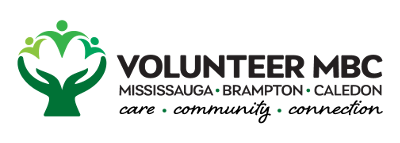“Spaces that are safer, where volunteers flourish”
If one were to select a single point from the Charter of Volunteerism in terms of looking forward to reach a superlative in the volunteering sector, the fourth clause under ‘Community Service Organizations PROVIDE’ arguably is the one to focus upon.
The Charter was drafted purposefully with a lens to the future, while acknowledging the present, particularly the issues that involve Peel region.
Volunteering on so many fronts and in so many ways cannot afford to stand still (stand pat), as our face-paced society restlessly is confronted by both familiar and novel challenges. In facing these, the Charter embraces a ‘call to action’, notably how community service organizations, their leadership and staff can promote and ensure inclusiveness.
In February’s CharterWatch, reference was made to diversity in the important area of gender identity and sexual orientation. Relevant dialogue and attitudes in the volunteering sector appear to be well on their way, evolving for the better, albeit that there remains work to be done, further effort to be made. And ongoing attention to this area in social media has achieved a sophisticated level of maturity that continues to trend towards acceptance, accompanied by gender recognition as a ‘standard’, rather than some sort of affirmative action.
Lest we forget that inclusiveness embraces much more than gender. Another high profile area is inclusion of Canada’s Indigenous Peoples, certainly not to be ignored from both moral (that is, ‘Truth and Reconciliation’) and mobilization perspectives. Mere regret, and an apology, are frankly not enough.
We’re not finished yet with inclusiveness. Not by a long stretch. Hiding in plain sight, virtually everywhere Canadians look, are people with disabilities, apparent and hidden, occasionally embraced, but more often disregarded.
A huge contrast has us witness to the reality that many need to reach out for assistance, often with less than ideal results, met by longstanding attitudes that avoid positively reaching out ourselves so as to treat persons with disabilities as genuine participants in our life experiences, accompanied by efforts to achieve that. Volunteers are in a unique position to forge attitudes and behaviours that include everyone in the conversation, plus take action as part of the ‘leading edge’. Realizing parity that ought not to be thought of as a trend or goal, then disappointingly shelved.
We cast our eyes once again to the phrase. What stands out are two words: ‘safer’ and ‘flourish’. Deliberately chosen, these are indeed benefits of inclusiveness, standards for all and everyone that must be ‘us’.
